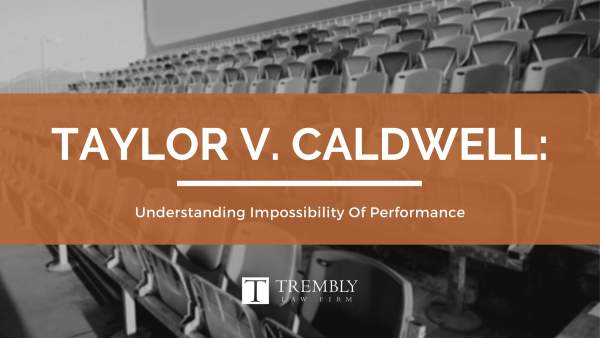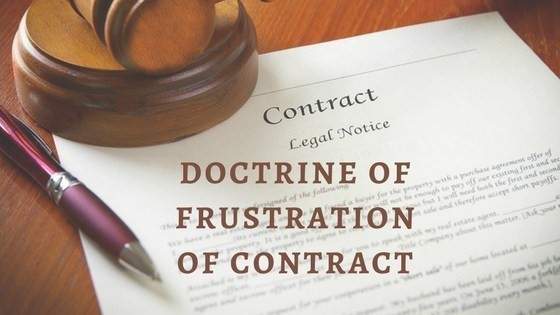Question :
Law of contracts plays an important role in managing the contractual relationships of the persons who are party to the contract. In the case of “Taylor v Caldwell (1863)”, Doctrine of Impossibilities was established based on the destruction of the subject matter. This is considered as the landmark case of English contract law. In this case, the plaintiff sued the defendant for the non-performance of the contract made between them. Such a non-performance was the result of an unforeseen event which was unavoidable and either party to the contract were not at fault.
- What is the law of contract?
- What are the essentials of a valid contract?
- Explain “Doctrine of Absolute Obligation”?
- What are the facts of “Taylor v Caldwell (1863)” case?
- What was the judgement given in “Taylor v Caldwell (1863)” case of English Contract Law?
Answer :
Background
The English law of contract provides the citizens of the United Kingdom with the laws that help them to maintain their contractual relationships. This law helps people who are party to the contract by providing them with provisions that will help in building their relationships with another party to the contract. A contract is that which is legally binding upon the parties only if it is valid and has fulfilled the essentials of a valid contract. There are four essentials of forming a valid contract by the parties. They are offer, acceptance, intention to create legal relationship a consideration. Firstly the parties who want to create a contractual relationship must start by making an offer to the opposite party. Once the offer is accepted by the other party it forms an agreement. A contract can either be written or oral. The parties forming a contract must have an intention to build a relationship that is legal in nature. The intention must be clear and specific. The main of all the essential is a consideration which is money. Consideration completes the validity of the contract. Absence of consideration does not form a valid contract. When all the essentials of the contract are fulfilled by the party the contract becomes a valid contract. Once the contract is valid it becomes enforceable by the law and also has a binding effect upon the parties. Breach of such a valid contract will make parties liable for the payment of damages.

(Illustration 1: Trembly, 2020)
A valid contract creates a legal obligation upon the parties. There is only one condition under which the parties do not have an obligation when there exist “Doctrine of Absolute Obligation”. Under this situation, neither parties are held liable for the breach of contract or for its termination. The parties do not own any duty in the case where there is an unforeseen event.
Doctrine of Absolute Obligation or Doctrine of Frustration
It is applied when the parties to the contract are discharged from their duties due to the unforeseen event. In this case there is no fault of either of the parties to the contract. This is the case where it gets impossible to render the performance due to doctrine of frustration.

(Illustration 2: iPleaders, 2016)
Facts
In the case of Taylor v Caldwell (1863) the facts were that, Caldwell and bishop were the owner of the Surrey gardens & Music Hall. They entered into contract with Taylor and Lewis by agreeing to rent the said hall for £100 per day. Taylor planned on using the hall for four concerts. In the said concern they were planning on providing various extravagant Entertainment to the people. The entertainment was to include: live performance of Sims Reeves singing, military or quadrille band of 35 to 40 piece. Minstrels, fireworks, al fresco and illuminations. They were also planning onto keeping ballet performance, tight rope performance, air gun shooting, various types of games, aquatic sports, etc.
The contract between the parties stated that defendants were to provide performers who will mostly be Britisher. Taylor and lewis both agreed on paying the amount of the rent of the hall to Caldwell and Bishop in the evening of the concerts every time. They agreed to pay the amount through a crossed cheque. The terms in the contract also included that Taylor and Lewis were also suppose to pay for the performers and other artist participating in the said event. A week before the day when they were to have their first concert, music hall got burnt and the damage was not repairable in a week. The hall was burned to the grounds. The destruction of the hall was without the fault of either parties to the contract.
Plaintiff in this case sued the defendants (the owners of the hall) for breaching the contract they had on the grounds that they failed to provide the music hall to them. Upon looking at the contract it was found that they had so such clause which stated the risk allocated for the underlying facilities. They had only one phase in the contract in the end of it which says “ God's will permitting”.
Related Sample: Business Law ILAC Method & Example - An Ultimate Guide

(Illustration 3: lookandlearn, 2021)
Legal issues
- Whether the loss suffered by the plaintiff is recoverable form the defendants?
- Whether the said destruction excuses the obligation of the parties under the contract?
Decision
It was held by the court that the loss which was suffered by the plaintiff is not recoverable from the defendants. The defendants of the case were discharged of their performances and their failure to not perform their duty i.e. to provide the music hall for concert was not considered as a breach of contractual relationship.
Related Service: Research Paper Writing Help
When the contract is of absolute nature it is the duty of the parties to perform their duties towards other party mentioned in the contract. Otherwise they will be liable for paying damages for their non performance of the terms and conditions of the contract. The only exception to this liability is when the non performance of the contract is because of the consequences created by the events unforeseen.
This was the case where for the first time “Doctrine of Impossibility” was established through the destruction of the subject matter.
























